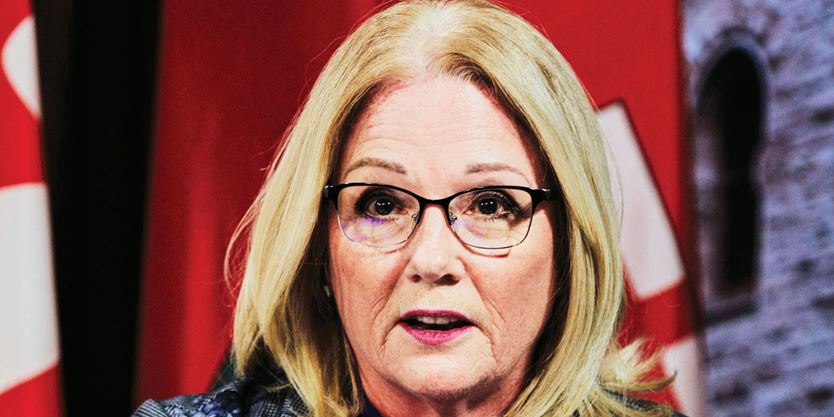The union that represents healthcare workers at Simcoe Manor in Beeton is accusing management of not doing enough to prevent the COVID-19 outbreak at the facility that has led to nearly 70 infections and nine deaths since it began on Oct. 2.
Sharlene Stewart, union president for SEIU Healthcare, which represents nearly 160 workers at the home, claims the County of Simcoe didn’t take proper precautions after a resident was hospitalized on Sept. 27.
“If this resident had enough symptoms to be taken to the hospital, I’m sure he was presumed to possibly be infected with the virus,” she said.

But according to Jane Sinclair, the general manager of health and emergency services for the County of Simcoe, which manages the 126-bed facility, the resident who was hospitalized on Sept. 27 was not presenting COVID-19 symptoms, and was released back to the home after he was assessed at the hospital.
While he was given a COVID-19 test that day, she said the hospital determined at the time his condition was not COVID-19 related.

“It was a non-COVID related diagnosis, so we took the appropriate steps based on the medical information we had at the time,” she said.
Sinclair said management was informed about his positive test result after the outbreak had already been declared on Oct. 2, which happened after another resident also tested positive.
The resident died from the virus on Oct. 3.
Stewart also lashed out at management for how the situation was communicated to staff, noting many found out on social media.
Sinclair said the home has “stringent processes” for how it shares the personal health information of its residents.
She said anyone who is in the circle of care, the staff members who are directly involved in caring for the person, were regularly advised about his condition, including the assessment that was done in hospital.
“We followed all of our normal communication processes to ensure that circle was updated and informed,” she said.
Sinclair said there has been even more communication between staff and families since the outbreak began, including weekly virtual town halls and daily huddles with staff.
“We are really focusing on communication with our staff because we know how important it is,” she said.
Stewart said there was also a problem regarding access to personal protective equipment (PPE), noting a staff member had to break into the storage area.
Sinclair confirmed that a nurse encountered a faulty lock, resulting in a member of the maintenance team having to break it open. But she said there have been no other issues with staff being able to access PPE.
Sinclair said the province has directed all homes to keep PPE secured and to keep close tabs on the gear to ensure it being used appropriately and an adequate supply is kept on hand.
The home has been under the management of Royal Victoria Hospital since the province ordered a temporary management order on Oct. 12.
Stewart was also concerned with outside agency workers coming to work in the home.
Sinclair said the county was forced to get help from other companies, especially as more staffers became infected, to ensure they maintain baseline staffing levels and quality of care for residents.
But she said all contractors have to sign a contract to confirm they are not working at other facilities.
Sinclair said county staff who work in other departments have also been redeployed to the home to assist, and all county employees are only allowed to work at a single location.
Stewart said it’s “unacceptable” an outbreak like this was able to happen, but she places much of the blame on the provincial government.
She questions why more wasn’t done to prepare for the second wave in the summer when the number of cases dropped.
“Simcoe Manor is an indication that we haven’t done better,” she said.
This echoes statements that were made in a recent inquiry by doctors from the non-profit Ontario Long-Term Care Clinicians, about how the province ignored long-term care homes as it prepared hospitals for the second wave.
Earlier this month, the Ontario Health Coalition held protests to demand the Ford government take action to address what it calls the “critical shortage” of staffing and care in long-term care homes.
As part of its fall preparedness plan, the province said it would make $540 million in long-term care investments, with portions of the funding going towards enhanced infection prevention and control, and to address the issue of adequate staffing.
“We are working in partnership across government and doing everything we can to protect Ontarians from COVID-19,” said Dr. Merrilee Fullerton, Minister of Long-Term Care, in a statement. “We have made tremendous progress to fortify our long-term care homes, so they have the physical and human resources they need to ensure the safety and well-being of all residents and staff.”
But Natalie Mehra, executive director of the coalition, described these investments as “piecemeal” and “inadequate.”
As of Oct. 26, there were 86 active outbreaks reported in LTC homes throughout Ontario and 1,921 resident deaths.
